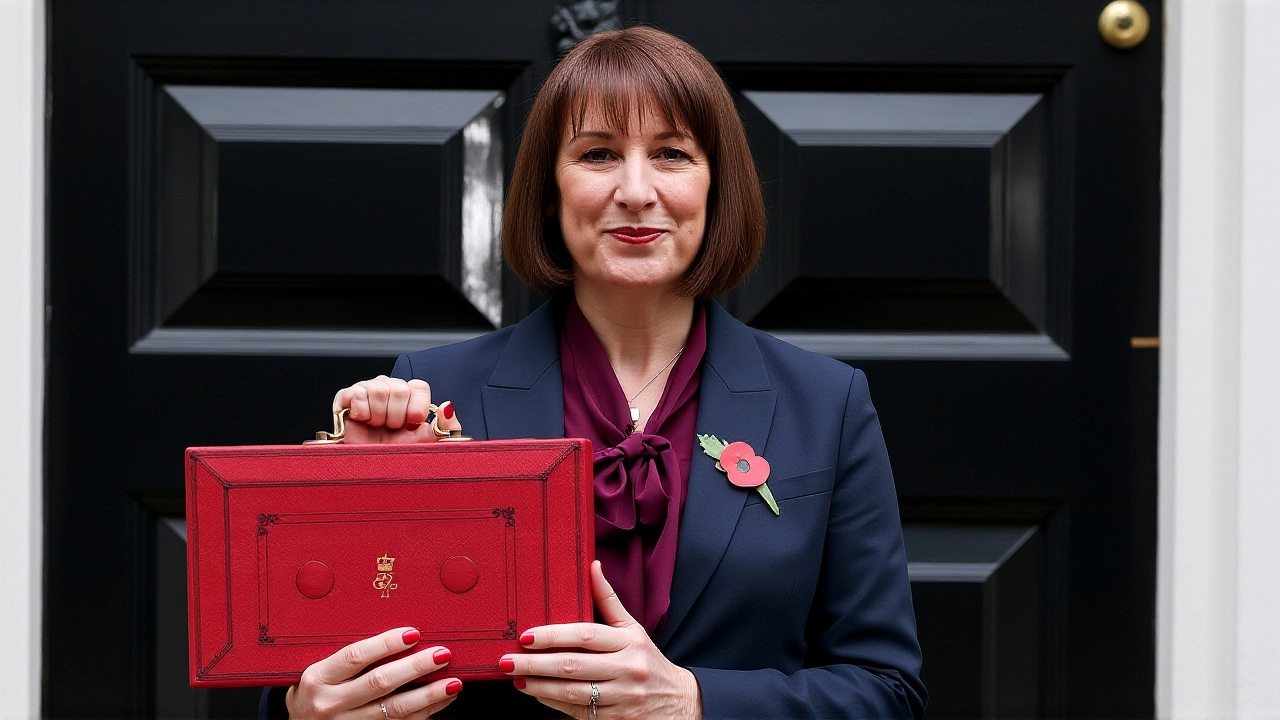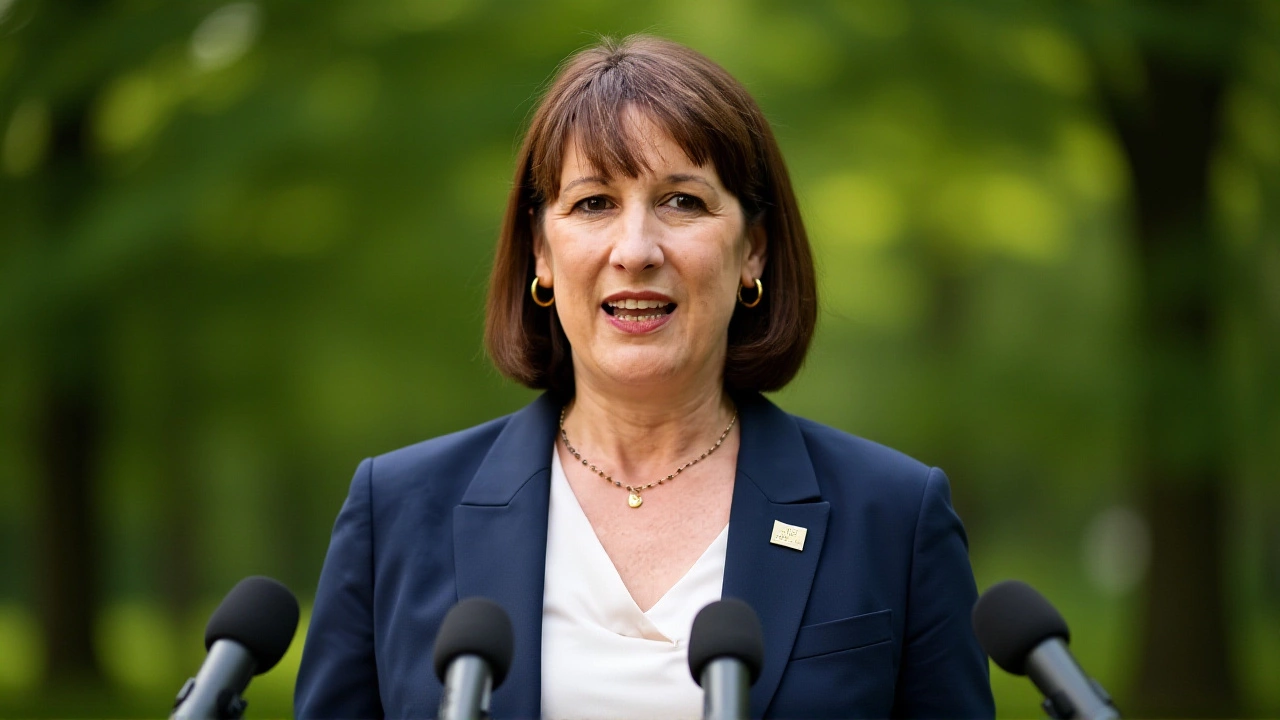
Chancellor Rachel Reeves didn’t mince words. Standing before the press after unveiling the government’s latest fiscal move, she acknowledged what millions of British households already felt: economic unfairness. The announcement? A two-year extension of the freeze on personal income tax thresholds — a policy that, by 2029-30, will rake in £8.3 billion a year, according to the Institute for Fiscal Studies. It’s not a tax hike on paper. But for 30 million workers, it’s exactly that.
What’s Really Happening? The Silent Tax Rise
The personal allowance — the amount you can earn before paying income tax — has been stuck at £12,570 since 2021. So has the higher rate threshold, where 40% tax kicks in: £50,270. And the additional rate threshold? Still £125,140. Inflation has soared since then. Wages have climbed, too. But the government hasn’t moved the goalposts.
That’s fiscal drag — a quiet, relentless squeeze. As your salary rises with inflation, you’re pushed into higher tax brackets without ever getting a formal pay raise. A nurse earning £35,000 in 2021 now earns £41,000 in 2024. She’s not richer in real terms. But she’s paying more tax. And she’ll pay even more by 2029, when her £48,000 salary pushes her deeper into the 40% zone — all because the thresholds haven’t budged.
The Institute for Fiscal Studies, based at 7 Ridgmount Street in London, calculated this with surgical precision. Their model factored in Bank of England inflation forecasts, ONS wage trends, and demographic shifts. The result: £8.3 billion annually by 2029-30. That’s not pocket change. It’s 1.2% of all UK tax receipts. And it’s coming from the pockets of middle earners — the very people who voted Labour in hopes of fairness.
Why Now? The £22 Billion Hole
Reeves didn’t invent this policy. She inherited it. The freeze began under Rishi Sunak in 2021, extended to 2027-28 by Liz Truss’s disastrous mini-budget, and now, under Labour, it’s being pushed out to 2029-30. The reasoning? A £22 billion fiscal black hole left by the previous government. Without this revenue, the Treasury says, public services — from the NHS to school funding — would face deeper cuts.
“We’re not raising rates,” Reeves told reporters. “But we’re not pretending this isn’t a burden.” That honesty was rare. Most politicians avoid calling it a tax increase. Reeves didn’t. She called it out. And she named the anger.
“People are right to be furious,” she said. “They’re working harder, paying more for groceries, and seeing their paychecks vanish into tax brackets that haven’t changed in over a decade.”
Who Pays? The Real Winners and Losers
It’s not just the middle class. Think of the teacher in Cardiff earning £38,000. The postal worker in Belfast making £34,000. The warehouse supervisor in Manchester hitting £45,000. All of them — without any change in their actual living standards — will pay more tax by 2029.
Scotland is a partial exception. The Scottish Parliament sets its own income tax rates, but the UK-wide thresholds still govern eligibility for benefits like Child Benefit and Tax Credits. So even if a Scot pays less tax, they’re still caught in the same net.
Meanwhile, the top 1% — those earning over £125,140 — are largely unaffected. Their tax rate doesn’t change. The freeze doesn’t touch them. The burden falls squarely on those earning between £12,571 and £125,140. That’s 85% of taxpayers.

The Bigger Picture: A Political Tightrope
Labour campaigned on fairness. Reeves, the first woman to hold the chancellorship, promised to fix the economy without hurting ordinary people. Now, she’s doing the opposite — and saying so out loud.
It’s a gamble. Polls show public trust in government is at historic lows. People don’t trust politicians to be honest. Reeves is betting that honesty will earn her room to breathe. “We’re not hiding,” she said. “We’re being clear about the trade-offs.”
But the backlash is already brewing. Unions are preparing campaigns. Think tanks are drafting alternative plans. And in Leeds West — Reeves’s own constituency — constituents are starting to ask: “Why us?”
What’s Next? The Autumn Statement
The full picture won’t emerge until the autumn fiscal statement, due in late October at the Palace of Westminster. That’s when Reeves will reveal whether this £8.3 billion windfall will fund new spending — or just plug holes in the budget.
One thing’s certain: if the money goes to infrastructure or green energy, it might win public support. If it just keeps the lights on in Whitehall, the anger won’t fade. It’ll grow.
Meanwhile, the freeze continues. Until April 5, 2030. That’s over five years of frozen thresholds. Five years of inflation quietly stealing from paychecks. Five years of people wondering if the system still works for them.
Frequently Asked Questions
How does the tax threshold freeze affect middle-income earners?
Middle-income earners — those making between £12,571 and £125,140 — are hit hardest because inflation pushes their pay into higher tax brackets without raising the thresholds. For example, someone earning £40,000 in 2024 will pay significantly more tax by 2029 even if their real income hasn’t increased. The Institute for Fiscal Studies estimates this affects 30 million people, with the average household losing £400-£600 annually by 2030.
Why didn’t Labour raise the thresholds as promised?
Labour inherited a £22 billion fiscal deficit and faces pressure to stabilize public finances before committing to new spending. Raising thresholds would cost £10 billion annually — more than the £8.3 billion gained by freezing them. Reeves chose to prioritize deficit reduction over immediate tax relief, arguing that without this revenue, cuts to hospitals and schools would be deeper.
Is this policy unique to the UK?
No. Canada, Australia, and the U.S. have all used fiscal drag in recent years to boost revenue without raising rates. But the UK’s freeze — now spanning nearly a decade — is among the longest and most severe. Most countries adjust thresholds annually for inflation. The UK hasn’t done so since 2021, making it an outlier among peer nations.
What’s the long-term impact on the economy?
Economists warn that sustained fiscal drag reduces disposable income, which dampens consumer spending — a key driver of growth. The Institute for Fiscal Studies notes that if this continues beyond 2030, it could reduce GDP growth by 0.3-0.5% annually. For a sluggish economy, that’s significant.
Will Scotland be affected differently?
Scotland sets its own income tax rates, so Scots may pay less overall. But they’re still subject to UK-wide thresholds for benefits like Child Benefit, which tapers off at £50,000. So even if they pay lower rates, many still lose benefits due to the freeze. The policy creates a hidden double penalty for Scottish families.
When will the next review happen?
The next major fiscal event is the Autumn Statement, expected in late October 2024. After that, thresholds won’t be reviewed until the 2027-28 Budget. The government has committed to no changes before 2030, meaning this freeze will last nearly a full decade — longer than any in modern British history.